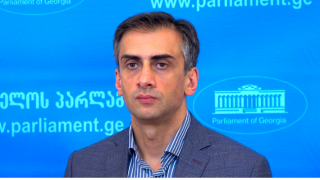Resume: In the 31 October 2020 parliamentary elections, 943 polling stations had mismatched summary protocols for the proportional part of the elections. The amounts of annulled ballot papers and valid votes exceed the number of voters participating in elections at 19 polling stations (25 ballot papers in total, whilst the amounts of annulled ballot papers and valid votes were less than the number of voters participating in elections at 857 polling stations (in total, 3,062 ballot papers). Apart from the mismatched protocols, numerous other irregularities have been identified on voting day. The unusually large number of summary protocols and complaints also attest to the significant number of violations. In addition, observer organisations identified such irregularities during the voting process that contributed to the rising distrust towards the election, on the one hand, and affected the final result of the election, on the other hand. This is also proven by the parallel vote tabulation results of the International Society for Free Elections and Democracy (ISFED) and ballot-stuffing revealed by Transparency International Georgia (TI). Therefore, the figures in Giorgi Kakhiani’s statement are correct, although naming them as the sole indicator of election rigging is manipulative and misleads the audience.
Analysis
On 1 December 2020, on air on Rustavi 2, one of the leaders of the Georgian Dream, Giorgi Kakhiani, stated that the existence of irregularities does not mean rigging. In response to the question from the anchor as to whether or not the “carousels” identified during the voting process means falsification, Mr Kakhiani replied: “You named one specific example which may create a wrong impression in the public. It is possible that such an incident really took place and nobody can exclude this. Maybe someone dropped something twice. I cannot rule that out. However, what we saw after opening the ballot boxes, extra ballot papers were registered in 19 polling stations across Georgia and the total number of surplus ballot papers was 25. So it means that the elections were rigged by 25 votes?”
Irregularities identified during the 31 October 2020 parliamentary elections contributed to a distrust towards the results of the vote among a part of the public. The CEC’s data itself speaks about the scale of violations. According to the CEC’s data, 943 polling stations had mismatched summary protocols for the proportional part of the elections. The amounts of annulled ballot papers and valid votes exceed the number of voters participating in elections at 19 polling stations (25 ballot papers in total) whilst the amounts of annulled ballot papers and valid votes were less than the number of voters participating in elections at 857 polling stations (in total, 3,062 ballot papers). Since the 2008 parliamentary election, the number of lost ballot papers in the proportional part is the highest for the 2020 parliamentary election (see FactCheck’s article). As compared to the 2016 and 2017 elections, the number of correction protocols also increased sharply in the 31 October 2020 parliamentary election. In particular, 552 correction protocols were prepared (there were 353 correction protocols in 2016) at 507 polling stations for the proportional part of the election. In regard to the majoritarian part of the election, there were 644 correction protocols prepared (there were 271 correction protocols in 2016) at 584 polling stations (see FactCheck’s article). Of additional note is that a total of 2,092 complaints were filed at District Election Commissions by local observer organisations and electoral subjects in regard to the 31 October 2020 parliamentary elections on and after voting day. Of this amount, 633 complaints were filed by observer organisations and 1,459 were filed by electoral subjects. The total number of complaint filed during the 2020 election is 924 which is 1,126 more as compared to the 2016 and 2017 elections, respectively (see FactCheck’s article).
Many local and international organisations highlight the importance and the scale of the irregularities identified on voting day. On 1 November 2020, the International Society for Free Elections and Democracy (ISFED) published parallel vote tabulation results. According to the report: “In the vote tabulation process, there was a tendency of mismatches in the summary protocols when the number of ballot papers cast exceeded the number of signatures in voters lists which represents a violation. Additionally, at certain polling stations the mismatch was significantly higher than in individual cases. Such violations were reported at 8% of the polling stations and a tendency of this scale has not been documented in the past years and so this requires particular attention. Although such a tendency could have had a certain influence on the results of electoral subjects, the PVT analysis shows that its maximum impact on election results would be less than 4.1%. This tendency endangers the trust towards the electoral process and requires an immediate reaction from the electoral administration.”
On 4 November 2020, 25 NGOs released a joint statement on the 31 October parliamentary elections. According to the signatories, the Georgian government has failed to ensure that the elections adhered to democratic standards. The statement reads: “Moreover, in our assessment, the 2020 parliamentary elections were the least democratic and free among the elections held under the Georgian Dream government.” The signatories of the statement requested a recount of the results of the polling stations where imbalances were observed in the protocols. The National Democratic Institute (NDI) Georgia Office Director, Alan Gillam, and the President of the International Republican Institute, Daniel Twining, also emphasised the severity of the violations and the need for a vote recount (see FactCheck’s article).
On 1 November 2020, the Parliamentary Assembly of the Council of Europe, the OSCE/Organisation for Democratic Institutes and Human Rights Office, the NATO Parliamentary Assembly and the OSCE Parliamentary Assembly international observation mission released a joint preliminary assessment on the 31 October 2020 parliamentary election. According to the report: ”The 31 October parliamentary elections were competitive and, overall, fundamental freedoms were respected. Nevertheless, pervasive allegations of pressure on voters and a blurring of the line between the ruling party and the state reduced public confidence in some aspects of the process.”
Together with the statistics of the identified irregularities, it is also important that the observer organisations revealed facts of ballot stuffing. For instance, a TI observer at the Marneuli polling station N13.22.65 identified an individual who voted at least ten times and there are three video recordings of his transgressions. There was an alleged fact of ballot stuffing identified at the Didi Jikhaishi polling station N25 (22.54.25). Of note is that such violations contributed to a distrust towards the overall election process and, therefore, it is only natural that a part of the public is becoming vocal about a possible rigging of the election and is openly expressing protest.
Finally, we may say that the aforementioned data and assessments clearly indicate that the irregularities identified in the voting process contributed to a distrust towards the election among a part of the public, on the one hand, and affected the election results, on the other hand. This is also proven by the ISFED’s report. In light of these irregularities, Giorgi Kakhiani emphasises only a small number of extra ballot papers and ignores the numerous other violations during the election process. Distrust towards the election was stipulated by the number of violations and their content together and the singling out of only one specific indicator is not relevant. In addition, Mr Kakhiani seeks to portray the extra ballot papers as an admissible error which is obviously wrong and in this way he aims to mislead the public. Therefore, Giorgi Kakhiani’s statement is a MANIPULATION OF FACTS.
Editor’s Remark
To reach the verdict in the initial version of the article, FactCheck used the ISFED’s parallel vote tabulation results published on 1 November 2020. In accordance with the ISFED’s statement on 1 November 2020, mismatches were found at 8% of the polling stations and their impact on election results would be less than 4.1%, pointing out that this tendency endangered trust towards the electoral process.
On 11 December 2020, the ISFED released a statement on identification of technical fault in the vote calculation formula. In particular, the number of invalid ballot papers were counted along with the votes received by electoral subjects. As a result of a respective correction, the percentage points of votes received by electoral subjects were altered.
Given the ISFED’s aforementioned statement, FactCheck will no longer take PVT results into account. Although, this said, the verdict of the article will not be changed. Giorgi Kakhiani emphasises in his statement only a small number of extra ballot papers and ignores the numerous other violations during the election process. Distrust towards the election was stipulated by the number of violations and their content together and the singling out of only one specific indicator is not relevant. The official statistics, compiled by the CEC, also attest to the large number and diversity of election irregularities. The facts in the article prove that Giorgi Kakhiani’s statement is a manipulation of facts.








